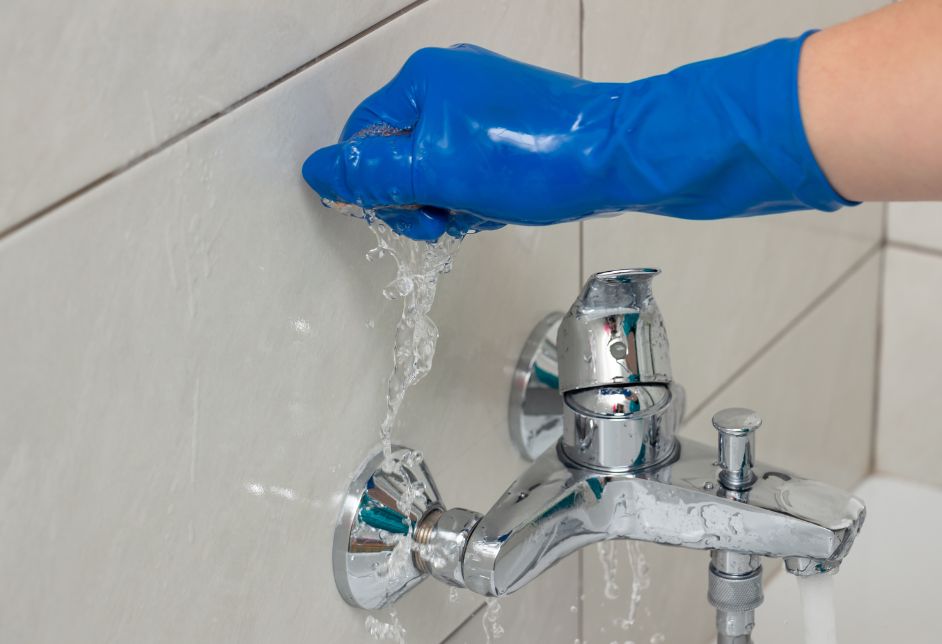Have you ever considered the underlying causes of someone’s untidy living space? Messy homes can be due to various reasons, such as time pressure and mental health issues. Awareness of what leads people not to keep their houses clean is critical to understanding them better and discovering ways to resolve this issue effectively.
This blog post will review several aspects of a messy home: its effects on individuals’ well-being, how certain personality traits affect cleaning habits, and some potential strategies that could help cope with the challenge posed by poor tidying practices
Short Summary
- Identifying the root causes of a messy house is necessary to address it effectively.
- Busy lifestyles, emotional and mental health issues, physical limitations & disabilities can all affect cleaning habits.
- Strategies for overcoming challenges include breaking tasks into manageable steps, seeking help and support, and creating realistic plans.
Understanding the Root Causes
Leading to a disorganized, often “dirty” house can be attributed to numerous reasons. These include needing help managing time. Struggles with emotional or psychological well-being and physical issues that could limit the ability to clean. Comprehending these factors is essential when endeavoring to tackle this issue successfully.
For the neatness of one’s living space, all three are significant considerations that must be noticed if an individual hopes for desirable results.
Time Constraints and Busy Lifestyles
An often overlooked factor that can lead to an untidy home is a busy schedule. With limited time, it’s difficult for people with many possessions to organize and clean their living spaces properly.
This obstacle becomes even more significant when facing more complex mental illnesses like depression or anxiety because emotional strain impedes the ability to focus on cleaning tasks, which worsens existing mental health issues.
Emotional and Mental Health Factors
Mental and emotional health factors can primarily influence the state of someone’s living space. For example, depression or anxiety can bring about an unorganized dwelling place. Prolonged stress could be a problem. Lead to the messy nature of a person’s domicile as they may focus more on their psychological well-being instead of tidiness in that area.
In some cases, deep-seated psychological issues such as distress might result in individuals avoiding specific tasks, including cleaning, since it brings up unpleasant sensations. This is especially true when too many items clutter the residence furthering physical or mental illnesses already present, making professional help even more essential for those affected by these disorders.
Physical Limitations and Disabilities
Physical limitations, disabilities, or health issues can cause a dirty and untidy house. For instance, those with mental illness might struggle to complete necessary chores due to mobility problems or chronic pain. Impairments such as fatigue, limited movement, and poor vision could occur. Complicate the completion of household tasks.
When someone cannot keep their home clean because they cannot handle it mentally/physically, asking friends for help or contacting a professional service should be done to tackle this issue confidently without being embarrassed or experiencing financial hardships from seeking aid.
The Impact of Clutter and Mess on Well-being
Living in a messy home can harm a family member’s physical and mental well-being. Numerous health issues can arise from an untidy environment, such as dust mites, mold infestations, rodents, and potential food poisoning dangers, which could all harm those living there.
Adverse psychological effects like low moods or lack of motivation are likely to result if residing in a disorganized space.
Health Risks Associated with Untidy Homes
Inhabitants of an untidy home can be at risk for serious health issues. Mold, dust mites, and spoiled food can cause physical ailments like allergies or even food poisoning, which significantly affect the mental and physical well-being of family members.
Unclean surroundings may lead to unpleasant odors, such as rotting items or bacteria, making it difficult for guests and residents. To prevent these risks, proper cleaning is essential.
Changing sheets regularly when pets are present, washing linens often, etc., will help guarantee better indoor air quality while maintaining a healthy environment free from any hazards that could result in adverse effects.
Psychological Effects of a Messy Living Space
The psychological consequences of an untidy living area can be severe. Being surrounded by clutter and disorder may cause feelings of discouragement, uncleanliness, and being overwhelmed, resulting in a lowered mood or mental health problems if left unchecked.
Research. Shows that people exposed to neat environments have been found to give away more generously than those whose dwellings lack order. This reveals how the arrangement of one’s home affects their behavior and mindset significantly—pointing out the worthiness of keeping up with tidiness at residence!
Personality Traits and Cleaning Habits
Organizational tendencies, or lack thereof, are determined by personality type. Type A personalities prefer a tidier home environment, and the more relaxed Type B folk are not so concerned. Perfectionism can impede cleaning duties from getting done as an individual continuously strives for flawlessness which delays the completion of housekeeping chores.
Type A vs. Type B Personalities
The distinctions in personality types help us understand the source of varying cleaning habits and preferences regarding living spaces. Type A personalities are ambitious, competitive, aggressive, and organized people who care about managing their time well. This type often tends to be more neat and orderly around where they live.
On the other hand, those with a B-type character tend towards being tolerant toward others’ opinions or activities – reflecting on things while also experiencing less stress over situations that may arise from day-to-day life compared to those classified as Type A individuals.
These folks usually view cleanliness at home somewhat differently than the beforementioned persons, given their preference for comfort rather than controlling all aspects of how something looks or is presented.
The Role of Perfectionism
Perfectionists may need help to clean their homes, as they often attempt flawlessly and hold too high expectations. Accepting that a tidy but not perfect residence still makes an inviting space is essential to address this issue. Acknowledging this can help alleviate the stress and enable more beneficial cleaning habits over time.
Strategies for Overcoming Cleaning Challenges
No matter the source of a messy home, there are strategies for tackling and managing cleaning tasks. Setting small goals that feel achievable, reaching out for help if needed, and creating realistic plans to improve one’s living spaces and overall well-being can be helpful.
Breaking Tasks into Manageable Steps
Breaking a more significant task into smaller, more reasonable steps can make tackling cleaning more accessible. Setting aside fifteen minutes to focus on just one wall or room makes the job look more manageable.
Thinking through each step in detail and considering what should come next will help save time when completing more challenging tasks that require physical effort. Making a timeline for the work also ensures everything is finished promptly, with enough left over for any last-minute tweaks.
Seeking Help and Support
For those facing cleaning challenges, seeking help and support is an effective strategy. One option many may explore is hiring a professional cleaning service that can offer deep-cleaning and sanitizing services. This could be especially beneficial for people with physical limitations or mental health issues that hinder their housekeeping abilities.
To employ professionals. Aid might come in the form of family members, friends’ advice, supportive networks online, and other resources – all being valuable options for achieving cleanliness around one’s living space while improving overall well-being.
Summary
We have been examining the various elements that result in a home being disorganized, such as lack of time, physical limitations, and mental health. We looked at how messiness can affect our well-being and discussed how personality traits and perfectionism play into cleaning practices.
To create a physically and mentally healthy atmosphere, it’s essential to recognize the causes of clutter so practical approaches may be implemented, like taking care of tasks bit by bit or looking for aid when needed. A neat living area isn’t only good for one’s body and mind; thus, take action now and make your residence a place filled with serenity through cleanliness!
Frequently Asked Questions
- What is the psychology behind messy people?
Being overwhelmed by numerous tasks can lead to disorganization and difficulty concentrating, which indicate that a person may be dealing with psychological issues. Such messiness results from the inability to properly prioritize activities due to being overburdened. Consequently, this leads them into a state where they feel physically and mentally drained.
Organizing one’s daily tasks can reduce stress levels significantly and create space for more meaningful achievements in life without succumbing to pressure from too much activity at once.
- What is messy house syndrome?
Those with what is known as “Messy House Syndrome” or Diogenes Syndrome are commonly called hoarders and have difficulty keeping their living space clean due to various physical or mental health issues. Depression, anxiety, dementia, and other medical conditions can lead to this disorder while also occurring from mobility-limiting factors like chronic pain or arthritis.
A Messy House Disorder’s significance in an individual’s life cannot be understated. It affects every aspect, including day-to-day activities, ultimately influencing overall well-being in the short and long run when not treated adequately. Physical health illnesses linked to it only add to it. Complications make even daily routine tasks more challenging for those affected directly.
Addressing the underlying psychological problems and specific physical ailments should be paramount in dealing with messy house syndrome if one wishes optimal outcomes regarding treatment efficacy for themselves or another person suffering from said condition.
- How do you help someone who needs to clean their house?
When helping someone declutter, staying impartial and creating a realistic objective for the residence are essential. Advise them to seek aid and start with the most significant places first. At all times, remember to take time out of your day for yourself, too, during this process.
Hello there!
I’m Daniel, a dedicated blogger passionate about uncovering unique ideas and the latest trends in the industry. I have a deep interest in sharing these details with all of you.
Through this blog, I aim to provide you with valuable insights and perspectives. Instead of focusing solely on travel and outdoor activities, I delve into diverse topics that captivate your attention. From intriguing news updates to practical money-saving tips, I explore various subjects.
Additionally, I offer detailed reviews of the gear I’ve acquired on my journeys, and I guide you through the step-by-step process of planning an unforgettable trip.
Are you ready to embark on an extraordinary journey? By immersing yourself in this blog, reading it regularly, finding inspiration, and sharing my stories with your friends, you’ll enhance your next adventure, making it truly memorable, enjoyable, and unforgettable.
I appreciate your support!




